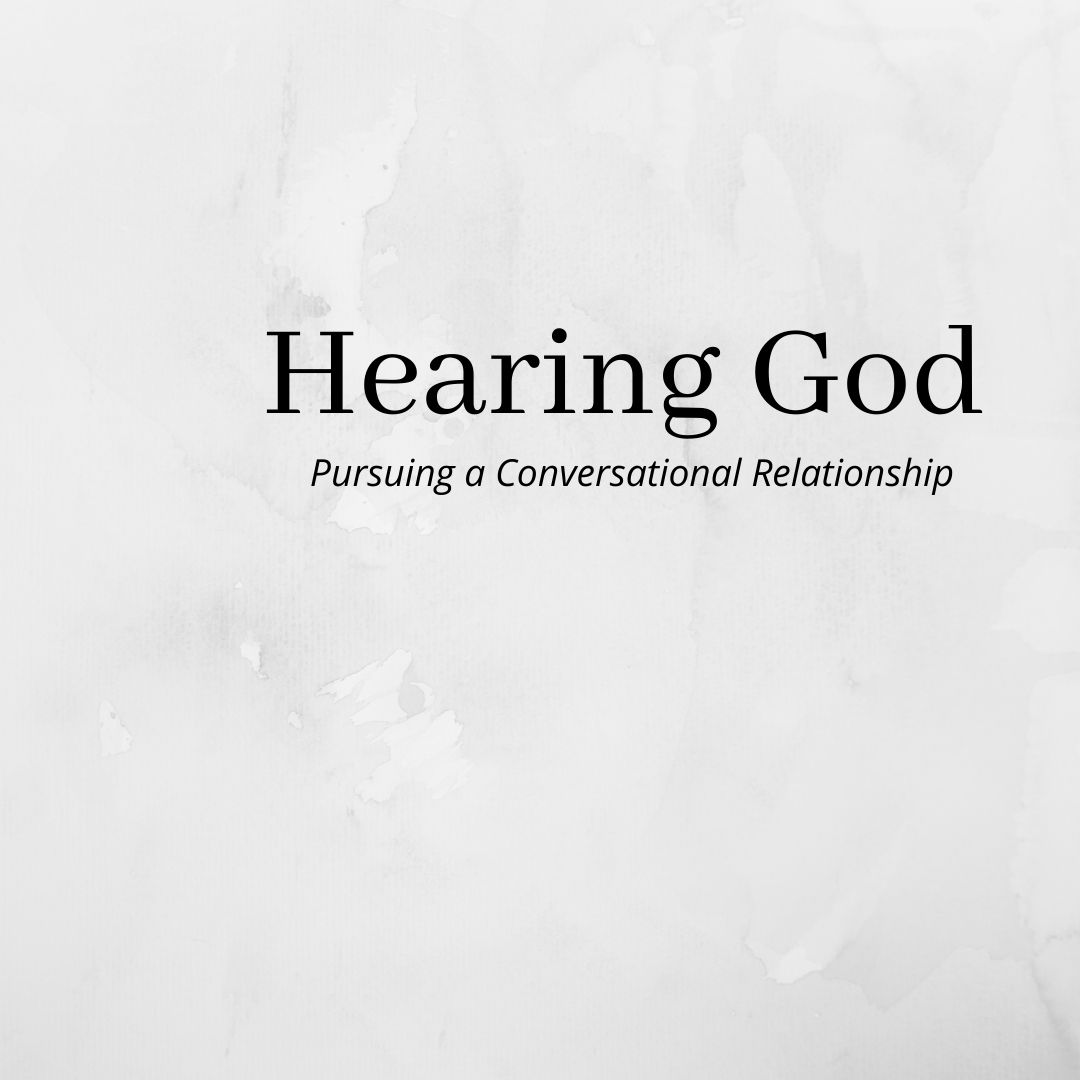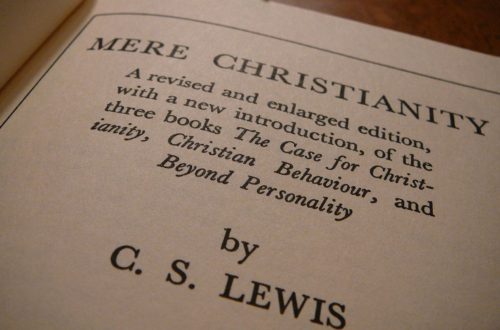
Hearing From God: It Starts with a Conversational Relationship
Hearing From God
Ever ask yourself, “how can I hear from God?” or “What is God’s will for my life?” Maybe you start thinking you’ve heard from God, and then start to question whether it was actually His voice. Or, when you ask, maybe you hear nothing, and wonder why.
Most, if not all of us dabble in these questions at some point in our lives. Even those outside the faith may contemplate what hearing from God might sound like, if He were to speak.
Our need to hear God
Just as David and the Israelites pleaded for God’s wisdom through the Psalms, and as Isaiah and other prophets asked for clarity and a vision, our need to hear from God is very great. These days, especially, many of us find ourselves trying to understand God’s direction in our lives and in the world. We need His voice now more than ever. Yet all too often, hearing from God can feel like a frustrating, confusing, and complex endeavor.
The following article discusses an overarching theme in our efforts to hear from God, which is presented throughout Dallas Willard’s book, Hearing God, and Sam Williamson’s book, Hearing God in Conversation: How to Recognize His Voice Everywhere. Both books are fantastic reads, and I would highly recommend them to anyone interested in this subject.
Both Willard and Williamson highlight the role of an ongoing conversational relationship with God as a way to hear and recognize His voice.
Barriers to hearing God
My journey towards trying to hear from God started when I was a teenager, but didn’t fully take shape until my mid 20’s when I entered into a more difficult time in my life. It seemed like here, when I needed God the most, He stayed quiet. Over a period of time with just “silence,” I started questioning the very presence of God, and the extent to which He was fully present in the world.
Turns out, I had a host of expectations I had been placing on God. I would beg or demand Him for a sense of direction, or a sign, and became even more flustered when it didn’t show up in the way I expected. I would ask for a dream, and it wouldn’t come. I’d ask for healing over parts of my mind and body, and it didn’t seem to happen — at least not then. During my “meditations” I would intensely seek out a word from Him, yet all I’d hear was own voice, which often got lost in the ruminating thoughts and doubts constantly circling around in my head at the time.
Fortunately, over the course of several months, I became drawn into a new body of believers, who helped me see and experience God in new ways. I was transformed by the works of Dallas Willard, who taught me that God continues to speak to His people, which happens through a conversational relationship, not in mechanical, religious routines or formulas. While I’m still learning how to listen and discern, I’m thankful for the chance to share what I’ve learned with you.

Hearing from God starts with a relationship
As human beings, we are wired for relationships. In order to truly thrive, we need intimate, healthy relationships with others and with our Lord. One could even say we were created to live in relationship with God and with His people.
We see, through Scripture, how our Lord pursues us, and desires for us to live in a right relationship with Him (Luke 15:3-10, Matthew 10:29-31, Psalm 53:2). As Dallas Willard states, “God created us for intimate friendship with Himself.” How beautiful this is, that God desires such a close relationship with us!
We know, in looking at our earthly relationships (marriage, friendships), that the foundation of a healthy relationship is communication. And so, in order to develop and sustain an intimate relationship with our Father, we must be engaged in ongoing forms of communication with Him.
God gave us words
As Adam Young, therapist and podcast host of The Place we Find Ourselves points out, God gave us ears to hear, mouths to speak, and brains to comprehend language. He created the mechanisms by which we can develop and understand words.
It doesn’t seem too far fetched, then, that He might use these abilities He gave us to communicate with us.
In Hearing God, Dallas Willard references several places in Scripture where God speaks to His people. Willard states that these events are not meant to be extraordinary but ordinary. Yes, Dallas Willard, one of the most respected philosophers and theologians of our time, is saying that we too can have this type of communication with God! He writes, “People are meant to live in an ongoing conversation with God, speaking and being spoken to.”
Adam Young similarly states,
“Conversational intimacy with your God is not only possible, it’s how you’re designed, it’s what you’re made for, it’s what God is interested in restoring in you. Union with Him, intimacy with Him — that’s the point. And the height of union, the height of connection…is conversation, a deep intimate sharing…”
The Place We Find Ourselves, Episode 38
This doesn’t mean that we can or should demand a word God, or that we can count on Him telling us what to do at every crossroad of our lives. After all, as Willard also writes, doing the will of God is different than just doing what God wants us to do. For some of us (myself included), we can get so caught up in the details of trying to figure out exactly what our next moves or steps should be. We can get so lost in making sure we get things right, that we miss out on the bigger picture, or the bigger conversation God is trying to have with us.
Willard writes, “Hearing God — as a reliable, day-to-day reality for people with good sense — is for those who are devoted to the glory of God and the advancement of his kingdom. It is for the disciple of Jesus Christ who has no higher preference than to be like him” (Hearing God, p. 70).
Off with the mechanical formulas here, and on with an authentic, genuine relationship with our Creator. Here, we can rest in knowing that the foundation of hearing from God is in our relationship with Him — not in our ability to perfectly discern a sense of direction from a sermon, piece of Scripture, or even cloud in the sky.
Hearing from God starts with a conversation, and a conversation starts with a relationship.
Paying attention to the “still small voice”
As we pursue this relationship, like we would a close friend, spouse, or relative, having continual conversations about what’s on our minds, how we’re feelings, or what we’re fearing, we become that much closer to hearing from God in the “still small voice.” Willard writes, “The still small voice – or the interior or inner voice, as it is also called – is the preferred and most valuable form of individualized communication for God’s purposes.”
As we get to know Him better, we learn to better hear and recognize His tone and message, just as sheep listen to and follow their faithful shepherd. (Find a guided meditation on listening to the voice of God through a shepherd/sheep relationship here )

References:
Willard, D. (2012). Hearing God. Indiana: InterVarsity Press.
Young, Adam. “The Process of Learning to Hear From God, Episode 38.” The Place We Find Ourselves, Adam Young Counseling, 22 October. 2019. https://adamyoungcounseling.com/2019/10/22/the-process-of-learning-to-hear-from-god-2/.




